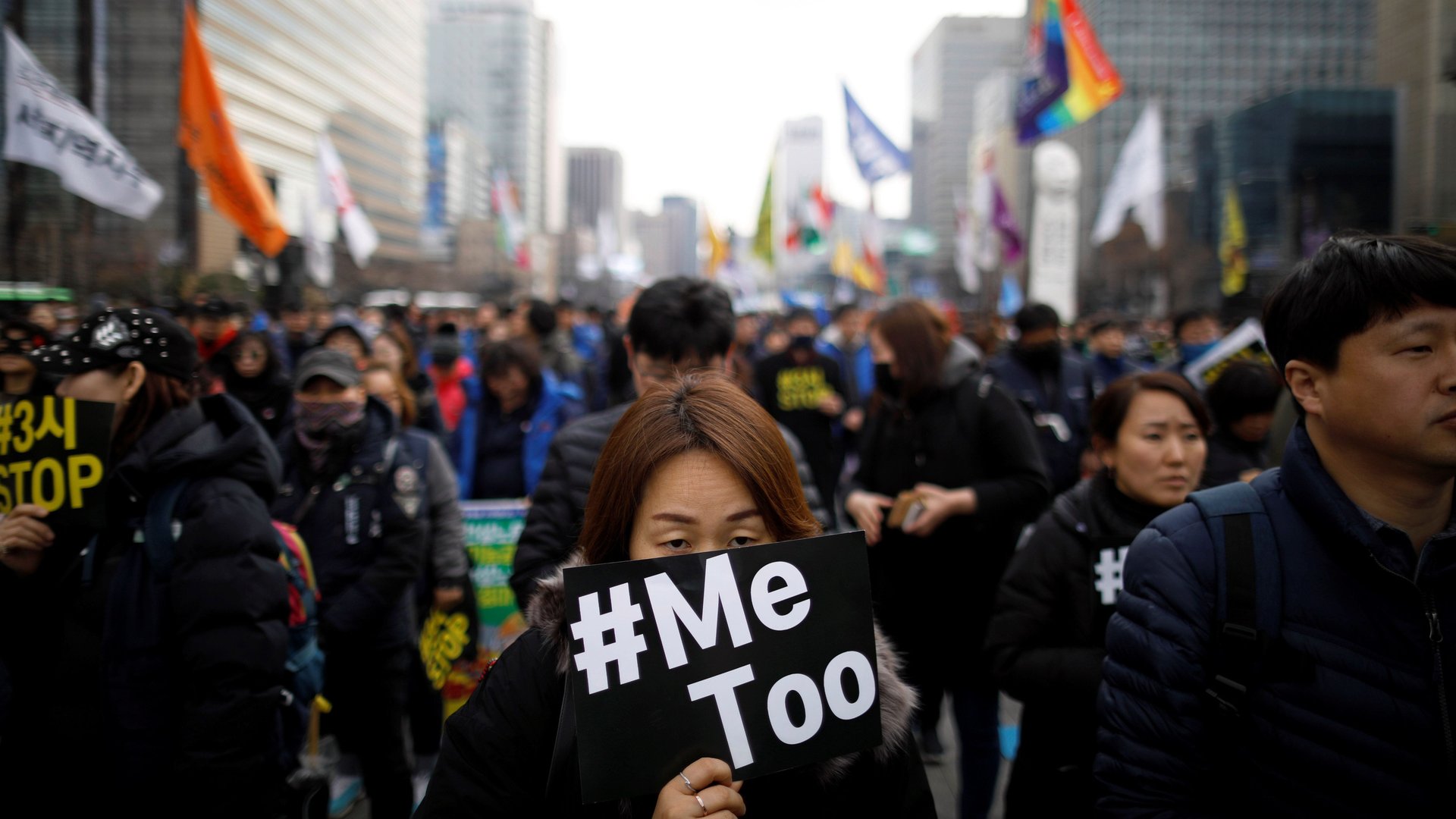The “female blackout” is what happens when Facebook activism doesn’t work
Over the weekend, a post started making its way around Facebook, urging women to “black out” their profile photos to raise awareness about domestic abuse. It did not achieve the virality of #MeToo, where women shared their experiences with sexual violence, or its more recent iteration of #WhyIDidntReport, where they said why they didn’t report their perpetrators. And it almost certainly won’t.


Over the weekend, a post started making its way around Facebook, urging women to “black out” their profile photos to raise awareness about domestic abuse. It did not achieve the virality of #MeToo, where women shared their experiences with sexual violence, or its more recent iteration of #WhyIDidntReport, where they said why they didn’t report their perpetrators. And it almost certainly won’t.
This online campaign was particularly ill-conceived, both in terms of logistics and the idea itself. Here’s an example of a “female blackout” post shared recently:
Several problems immediately jump out: “tomorrow” does not specify what day this blackout is supposed to happen. The post circulated on Saturday, Sunday, and Monday (Sept. 29 to Oct. 1)—as well as in September 2017. There’s no clear organizer, or origin, points out Forbes contributor Allyson Kapin.
It also doesn’t talk about the problem it’s supposed to be raising awareness for. It doesn’t talk about or imply what’s sparking this particular conversation. It doesn’t include a call to action. It doesn’t have the powerful element of individual stories, which made #MeToo and #WhyIDidntReport so poignant. In fact, it calls for the opposite: to stay silent.
Many women quickly pointed out that the problems with this approach, both on Facebook and Twitter. Speaking out is what brings about change, not shutting yourself out of the conversation.
It was also remarkably oblivious of the moment we are in, when the conversation the public in the US is consumed by—following the Supreme Court confirmation hearing for Brett Kavanaugh who is accused of attempting to sexually assault a high school classmate—is listening to what women have to say.
The language used in the post is highly problematic as well, others pointed out.
As we’ve seen in the last year, online campaigns, paired with real-life activism and dogged journalism efforts can bring about real change—the #MeToo movement is credited with helping to bring down many powerful men, holding them accountable for their actions. But they won’t always work, particularly if they take the shape of the clumsy chain-mail spam commonly found in the early days of the internet. In some ways, Facebook makes these campaigns easier to spread, because it connects so many people. Thankfully, the fact that Facebook posts are generally public also makes them easier to debunk.